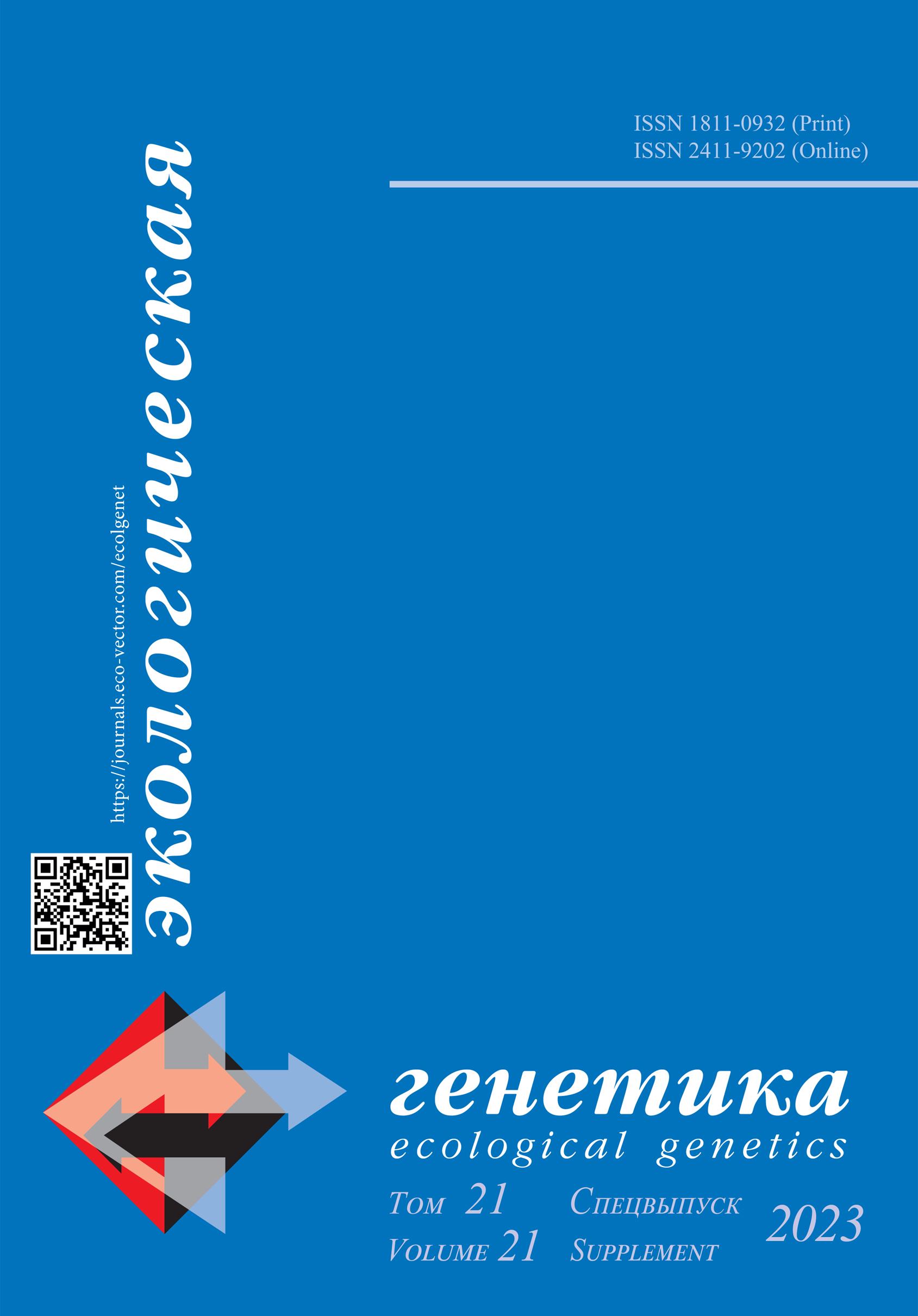Overexpression of the MtCLE35 gene in transgenic Medicago truncatula plants inhibits nodulation at early stages of symbiosis development
- Авторы: Lebedeva M.A.1, Dobychkina D.A.1, Kochetkova L.A.2, Lutova L.A.1
-
Учреждения:
- Saint Petersburg State University
- Sirius University
- Выпуск: Том 21 (2023): Спецвыпуск
- Страницы: 50-51
- Раздел: «ГМО: ИСТОРИЯ, ДОСТИЖЕНИЯ, СОЦИАЛЬНЫЕ И ЭКОЛОГИЧЕСКИЕ РИСКИ»
- Статья получена: 15.08.2023
- Статья одобрена: 31.08.2023
- Статья опубликована: 04.12.2023
- URL: https://journals.eco-vector.com/ecolgenet/article/view/568451
- DOI: https://doi.org/10.17816/ecogen568451
- ID: 568451
Цитировать
Полный текст
Аннотация
CLE (CLAVATA3/ENDOSPERM SURROUNDING REGION-related) peptides are known as systemic regulators of legume-rhizobium symbiosis that negatively control the number of nitrogen-fixing nodules. These regulatory peptides are produced in the root in response to inoculation with rhizobia, and are transported through the xylem to the shoot, where they are recognized by their receptor, CLV1-like (CLAVATA1-like) kinase, active in leaf phloem cells. After that, a shoot-derived signaling pathway is activated that inhibits subsequent nodule development in the root. Previously, we found that in Medicago truncatula, the expression of the MtCLE35 gene is activated in response to rhizobia and nitrate treatment, and its overexpression systemically inhibits nodulation. However, little is known about the downstream target genes regulated by a MtCLE35 signaling pathway in the root. Moreover, it is not completely clear which stage of symbiosis development is affected by MtCLE35-activated pathway. In order to identify genes regulated by the MtCLE35-induced signaling pathway, we performed a transcriptomic analysis of the roots overexpressing the MtCLE35 gene. Totally, 1122 genes were found to be differentially expressed between MtCLE35-overexpressing and control roots after rhizobial inoculation, among them 185 genes were upregulated and 937 genes were downregulated. Among downregulated genes, many known regulators of legume-rhizobia symbiosis were found. In addition to this, we analyze early steps of interaction between M. truncatula overexpressing the MtCLE35 gene and Sinorhizobium meliloti labeled with fluorescent reporter. We did not observe penetration of S. meliloti into host plant roots with MtCLE35 overexpression. Our data suggest that overexpression of the MtCLE35 gene inhibits nodulation at the very early stages of symbiosis development.
Ключевые слова
Полный текст
CLE (CLAVATA3/ENDOSPERM SURROUNDING REGION-related) peptides are known as systemic regulators of legume-rhizobium symbiosis that negatively control the number of nitrogen-fixing nodules. These regulatory peptides are produced in the root in response to inoculation with rhizobia, and are transported through the xylem to the shoot, where they are recognized by their receptor, CLV1-like (CLAVATA1-like) kinase, active in leaf phloem cells. After that, a shoot-derived signaling pathway is activated that inhibits subsequent nodule development in the root. Previously, we found that in Medicago truncatula, the expression of the MtCLE35 gene is activated in response to rhizobia and nitrate treatment, and its overexpression systemically inhibits nodulation. However, little is known about the downstream target genes regulated by a MtCLE35 signaling pathway in the root. Moreover, it is not completely clear which stage of symbiosis development is affected by MtCLE35-activated pathway. In order to identify genes regulated by the MtCLE35-induced signaling pathway, we performed a transcriptomic analysis of the roots overexpressing the MtCLE35 gene. Totally, 1122 genes were found to be differentially expressed between MtCLE35-overexpressing and control roots after rhizobial inoculation, among them 185 genes were upregulated and 937 genes were downregulated. Among downregulated genes, many known regulators of legume-rhizobia symbiosis were found. In addition to this, we analyze early steps of interaction between M. truncatula overexpressing the MtCLE35 gene and Sinorhizobium meliloti labeled with fluorescent reporter. We did not observe penetration of S. meliloti into host plant roots with MtCLE35 overexpression. Our data suggest that overexpression of the MtCLE35 gene inhibits nodulation at the very early stages of symbiosis development.
Об авторах
Maria Lebedeva
Saint Petersburg State University
Email: m.a.lebedeva@spbu.ru
ORCID iD: 0000-0002-6412-7401
SPIN-код: 6000-6307
PhD, Senior Researcher, Department of Genetics and Biotechnology
Россия, Saint PetersburgDaria Dobychkina
Saint Petersburg State University
Email: dobichkinadaria@gmail.com
Master student, Department of Genetics and Biotechnology
Россия, Saint PetersburgLilia Kochetkova
Sirius University
Email: liliya15kochetkova2000@gmail.com
Master student; Sirius University
Россия, SochiLyudmila Lutova
Saint Petersburg State University
Автор, ответственный за переписку.
Email: la.lutova@gmail.com
ORCID iD: 0000-0001-6125-0757
SPIN-код: 3685-7136
Dr. Sci. (Biol.), Professor
Россия, Saint PetersburgСписок литературы
Дополнительные файлы










